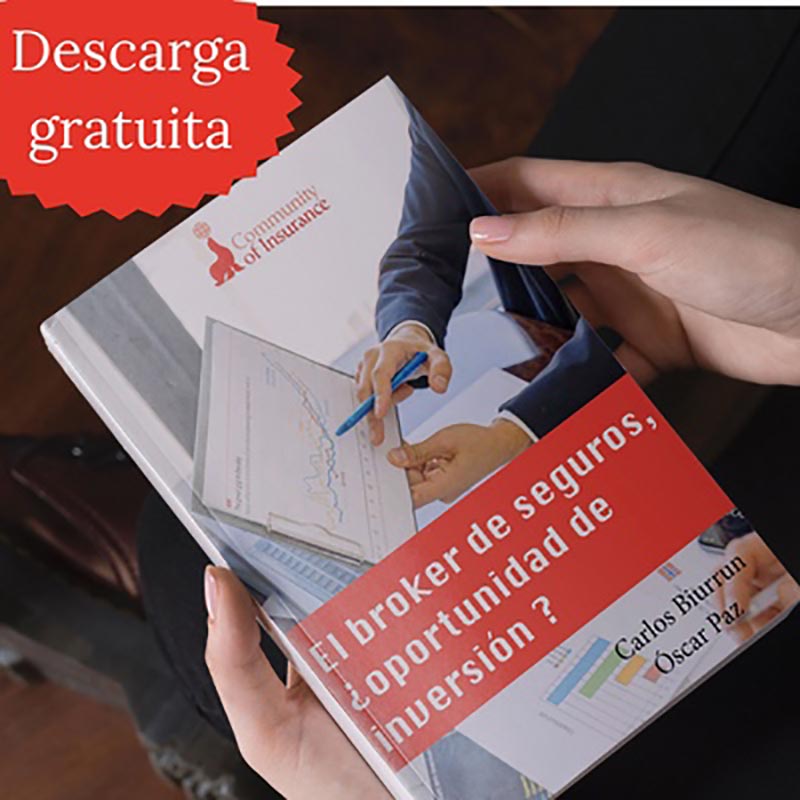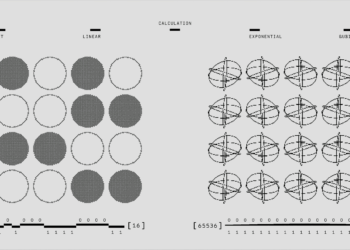[vc_row][vc_column][ad][vc_separator color=»turquoise»][vc_column_text]
 By Roger Peverelli and Reggy de Feniks – Founders The DIA Community
By Roger Peverelli and Reggy de Feniks – Founders The DIA Community
Ecosystems will play an important role in the future of insurance. But what are the success factors to really make this happen? Tom van den Brulle, Global Head of Innovation at Munich Re, says that at the end of the day insurance carriers need to be more courageous.
[/vc_column_text][vc_separator color=»turquoise»][vc_column_text]Las principales ideas de la entrevista, que pueden leerla completa en inglés a continuación:
- «En los últimos 5 a 10 años, con la digitalización, hemos aprendido que ya no podemos hacer todas las cosas por nuestra cuenta. Un ecosistema reúne a todos los actores que pueden contribuir a debatir y resolver un problema particular».
- «En Munich Re Digital Partners, por ejemplo, buscamos crear un ecosistema de insurtech donde nuestros socios puedan aprender unos de otros, donde puedan aprovechar el aprendizaje mutuo y la red más amplia que estamos construyendo.»
- «Creemos que los insurtechs son socios inevitables para trabajar. Están haciendo muchas cosas mejor, con más profundidad y con más enfoque. Hace un par de años, hemos considerado Insurtechs como front-end digital para seguros».
- «El Insurtech Hub Munich es una iniciativa del gobierno alemán para asegurarse de que los temas digitales avancen y se adelanten. Munich es una importante capital de seguros y estamos reuniendo a todos estos contribuyentes diferentes, instituciones académicas, empresas de tecnología corporativa, empresas de nueva creación en Munich, tratando de facilitar que la industria interactúe y use estas tecnologías diferentes».
[/vc_column_text][vc_separator color=»turquoise»][vc_column_text]Tom, what does your role as Global Head of Innovation at Munich Re involve, in particular with regard to ‘ecosystems’?
Tom: “I am looking after the innovation portfolio of Munich Re. My role involves the development of our own platforms, such as Parachute and Realytix. But Munich Re is also investing and developing in long-term partnerships with key partners through our unit Digital Partners for example. We’re a so-called cooperation partner on other platforms; think of Slice, that offers home-share insurance cover to Airbnb and other home rental platforms. We’re a member of various ecosystems; for instance B3i, Plug and Play and the Barclays Rise Program. And I also have the privilege to chair the Insurtech Hub Munich.”[/vc_column_text][vc_column_text css=».vc_custom_1532107546418{border-top-width: 1px !important;border-right-width: 1px !important;border-bottom-width: 1px !important;border-left-width: 1px !important;padding-top: 5px !important;padding-right: 5px !important;padding-bottom: 5px !important;padding-left: 5px !important;border-left-color: #dd3333 !important;border-left-style: solid !important;border-right-color: #dd3333 !important;border-right-style: solid !important;border-top-color: #dd3333 !important;border-top-style: solid !important;border-bottom-color: #dd3333 !important;border-bottom-style: solid !important;}»]Tom Van den Brulle is the Global Head of Innovation at Munich Re. Born in Seattle and raised in Belgium, England and Germany, Mr. Van den Brulle joined Munich Re in 1998, starting an international career that took him to even more places across the globe. Since May 2017 Mr. Van den Brulle is leading the wide array of innovation initiatives of Munich Re globally. Munich Re is one of the most important promoters of insurtech worldwide; as an active investor in innovative young tech firms and as a company that leverages insurtech to accelerate its own innovation, for instance in several hubs around the world. Munich Re’s provocative insurtech initiatives range from Chinese FlexiSafe, a WeChat-based non-life insurance solution that enables policyholders to adjust their various insurance covers as desired at any time, to Metabiota’s platform for estimating epidemic preparedness and risk, including the frequency, severity, duration and cost of outbreaks. Mr. Van den Brulle also chairs the Insurtech Hub Munich.[/vc_column_text][vc_column_text]What are Parachute and Realytix about?
Tom: “Parachute encompasses the complete value chain of insurance. Digital Porte Inc. is their new digital insurance agency, fully licensed to sell life and health insurance in Canada. Their business model allows both licensed and non-licensed partners the ability to sell eligible insurance products using DPI’s digital platform, Parachute.
With Realytix, , we are opening up new opportunities in the development of non-life-commodity products. Time-to-Market is the key term: In order to carry out back-end integration of a new product and bring it onto the market, primary insurers generally require up to two years. Realytix reduces this timeframe to just a few weeks.”
Asian players such as Rakuten and Ping An seize all sorts of new business opportunities because they think beyond the boundaries of their original industry. Thinking ‘ecosystems’ is at the core of their strategy
Tom: “In the last 5 to 10 years, with digitalization, we have learned that we can’t do all things on our own anymore. An ecosystem is bringing together all the players that can contribute to discussing and solving a particular issue. We need to organize ourselves differently, in order to learn from others and integrate processes. These can be corporates, but also governmental, academic institutions and others. The essence is that we need to find organizational solutions to bring all of them together. That’s the ecosystem.”[/vc_column_text][vc_single_image image=»33750″ img_size=»full»][vc_column_text]So it is critical to look beyond industry boundaries to solve the real issues that customers are facing; the problem that precedes the need for insurance.
Tom: “I think customers are looking for value, for trust and for choice. Customers are looking for more and more aggregated offerings of services. So that’s what you need to put together. You can look at this challenge from different angles. The question is, whether the insurance angle is the most relevant one. In some cases it can be. But in other cases, a different angle may be more relevant. For instance, when a customer books a flight, he or she may want to purchase a travel insurance on top, book hotel accommodation and rent a car. The challenge is to integrate insurance in this journey using technology but also through partnering with the right institutions. Institutions that have access to customers and that also have their trust. I think that is key.”
These trustworthy institutions being key; what kind of ecosystems do you envision in the future of insurance?
Tom: “There are different ways to look at this. The insurance value chain seems to become increasingly fragmented. We don’t have one insurer who covers the entire value chain from the capital market to the customer front end. It’s rather, and this is also what we see in the insurtech space, a range of very different players that are contributing different concepts and processes of value to serve the customer. It would be exciting, if a platform existed that brings all these different experts and excellences together.
However, the most recent DIA line-up also included some interesting blockchain use cases that showed us that probably in a couple of years, if the technology works, insurers will play a totally different role and maybe have a modified business model. If you bring investors together with risk owners, you don’t necessarily need anyone in between, including solving the problem of discretionary legal terms.
The second angle obviously begins with the question ‘who has access to clients’. Who really has a direct interaction with clients? Who can build trust that gives clients such a good feeling that they will come back and ask for more of these services? Even if they’re probably slightly less competitive.
So, one perspective is the fragmentation of the value chain and the other is the value of client interaction.”
This obviously has an impact on the role insurance carriers should play in an ecosystem, in particular with regard to the inherent desire to ‘be in control’, to take the orchestration role.
Tom: “Yes, the role may vary between ‘being in control’ and ‘just being one of the nodes’. Many new products and services will be aligned with life events, such as getting married, buying a house, having a child. Consequently, the role of insurers could expand beyond traditional risk management and insurance coverage. Of course insurers should determine what their distinctive added value is in an ecosystem. A mixed approach is the most suitable: centering around joint value creation for customers, providing risk-mitigation services to start with. Take Drover, one of the platforms Munich Re is involved with. It’s a marketplace that offers car leasing and leasing services to retail customers and rideshare drivers in the UK. The insurance is bundled with the car lease offering. Saveup is a digital savings platform which for end-customers that has been developed by Munich Re and is available as a white label solution for primary insurers.“[/vc_column_text][vc_single_image image=»33751″ img_size=»full»][vc_column_text]How important are insurtechs in developing platforms and ecosystems?
Tom: “We believe insurtechs are inevitable partners to work with. They are doing many things better, with more depth, and with more focus. A couple of years ago we’ve looked at Insurtechs as digital front-ends for insurance. But, coming back to the concept of fragmentation of the value chain, there are now so many different technology partners available that are able to contribute to the solution to the customer. We’re acquiring some of them, we’re partnering with some of them, we’re looking at them via venture capital funds. We’re trying to do this in a fairly intelligent way, in order to understand how we can really enhance the service that we’re giving to clients. This has become amazingly more complex than it was a couple of years ago.”
Why is that?
Tom: “Because technology has been accelerating so much. And because we are now digitizing entire value chains, rather than just the piece that interacts with the customer. But it has also become amazingly more fun actually to look at this and to bring it together. We see it positively, but it is a challenge for us to stay on top of the discussion. You need to do much more and you need different people for that. We are now really in a war of talent, probably something that we didn’t perceive to be a couple of years ago.”
Is that also one of the reasons why you are chairing the Insurtech Hub Munich?
Tom: “The Insurtech Hub Munich is an initiative of the German government in order to make sure that digital topics are being advanced and taken ahead. Munich is an important insurance capital and we are bringing together all these different contributors, academic institutions, corporate technology firms, start-ups in Munich, trying to make it easier for the industry to interact, and to use these different technologies.”
One of the elements that we like about Insurtech Hub Munich, is that its active members include leading universities and business schools. This may also help to attract talent, entrepreneurial talent as well as insurance talent to come to the industry with a more open view than they do today. Many mention the ‘war for talent’ being on top of the agenda when it comes to building those ecosystems.
Tom: “I think a couple of years ago, we all started working with insurtechs for cultural reasons. Because it was cool and because we didn’t understand all the startups and why they were wearing hoodies. But at some point it was also cumbersome – and we wanted our ties back. Today, it is really much more about how to get access to coders, how to get access to AI specialists, to the real people that are creating value there. Also this has become increasingly complex. That’s why we, the Insurtech Hub Munich, are partnering with Plug and Play, for example. Plug and Play are doing an accelerator program. And we are partnering with DIA to bring people together and make sure that we have access to them. It is less for the culture, and although it’s all really cool, it is now very much business driven.”[/vc_column_text][vc_single_image image=»33752″ img_size=»full»][vc_column_text]Ecosystems are not only about complementary capabilities to offer customers a more comprehensive solution. They are also about learning from each other in an open atmosphere.
Tom: “Absolutely. At Munich Re Digital Partners for instance, we are looking to create an insurtech ecosystem where our partners can learn from each other, where they can leverage from each other’s learning as well as the wider network that we are building. Think of subject matter meetings where Insurtech CTOs, CEOs and others exchange their experience and learnings on specific key topics of interest. Think of Munich Re clients who for instance advice our partners on regulation and market entry. Selected vendors that offer our partners all sorts of services, such as legal, consulting and HR. And tech providers that are able to build back end systems, payments and other necessary integrations.”
Being active in so many ecosystems, of so different nature – what would be the single most important learning from your vast experience that you would like to share when it comes to building and nurturing ecosystems?
Tom: “Well, my learning would be that we need to be courageous enough to build up new business models. When we’re looking at IoT for example and what impact it’s going to have on claims frequency, risk prevention is where we can expand our role. We know what it’s about. We know about risks. We know where they come from, how they evolve and what to do about it. The cooperation with Bosch, that we announced just recently is one step in this direction. Another example to illustrate what I mean by ‘being courageous enough’: imagine sitting in front of a risk-manager of an industrial company. They will probably burst in laughter when you tell them how few risk we are willing to take. With all the data that we are collecting, we need to be brave enough and really move into the field of risk prevention services, and suggest these companies solutions with a higher relevance for them and their industry reality.”[/vc_column_text][/vc_column][/vc_row]






